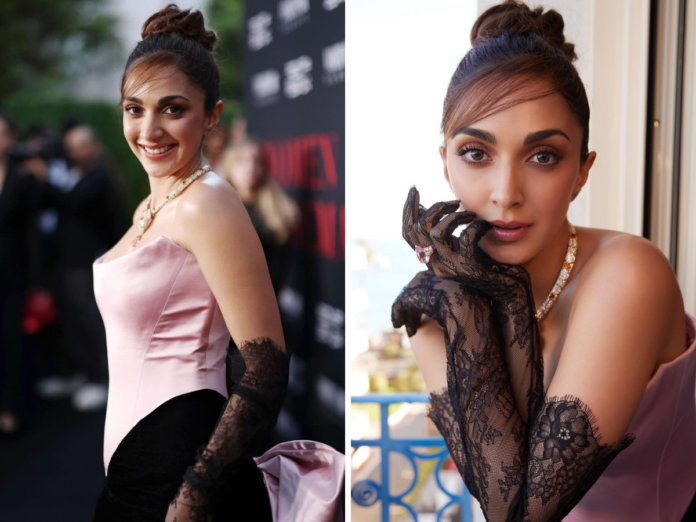Kiara Advani’s recent appearance at Cannes 2024 has stirred conversations not just about her fashion choices but also her speaking style. During an interview intended to celebrate her debut at the prestigious film festival, many noted a shift in Kiara’s accent, leading to speculations about the authenticity of her speech.
The term “code-switching” has been used to describe this phenomenon, wherein individuals alter their language or speech pattern depending on the social context or audience. In Kiara’s case, the change in accent could be seen as a form of code-switching, where she adapts her speech to fit the environment of the international film festival.
Code-switching is a common practice among multilingual individuals or those navigating different cultural spaces. It allows individuals to express their identity and affiliation with particular social groups while also facilitating effective communication in diverse settings.
Psychologically, code-switching serves various functions, including social integration, identity negotiation, and communication accommodation. In Kiara’s instance, her altered accent may have been a conscious or subconscious effort to align herself with the global film industry’s linguistic norms and expectations.
However, the phenomenon of code-switching is not without its complexities and criticisms. While some view it as a natural and adaptive behavior, others argue that it can reinforce stereotypes or perpetuate cultural biases. In Kiara’s case, the scrutiny of her accent highlights broader debates surrounding authenticity, representation, and cultural identity in the media and entertainment industry.
It’s essential to recognize that code-switching is a nuanced and multifaceted concept influenced by various factors such as social dynamics, linguistic background, and individual experiences. Rather than viewing it as inherently negative or inauthentic, understanding the psychological mechanisms behind code-switching can offer insights into how individuals navigate linguistic and cultural diversity in today’s globalized world.
Ultimately, Kiara Advani’s “fake accent” at Cannes 2024 provides an opportunity to delve deeper into the complexities of language, identity, and communication. It prompts us to question our assumptions about speech and cultural authenticity while acknowledging the diverse ways in which individuals express themselves in different contexts.
Kiara Advani’s appearance at Cannes 2024, adorned in exquisite attire and exuding elegance, was undoubtedly a momentous occasion for the Bollywood star. However, amidst the glamour and excitement of the film festival, her altered accent during interviews became a subject of intense scrutiny and debate.
For many observers, Kiara’s accent seemed markedly different from her usual speech patterns, sparking discussions about authenticity and identity. Some questioned whether her accent was genuine or a deliberate attempt to conform to Western standards of speech. In response to the criticism, Kiara’s supporters argued that her accent was simply a form of code-switching—a linguistic phenomenon where individuals switch between different languages or dialects depending on the social context.
Code-switching is a common practice in multilingual societies, allowing individuals to navigate diverse linguistic environments seamlessly. It is often influenced by factors such as socialization, education, and exposure to different cultures. In Kiara’s case, her exposure to international settings and interactions with people from various linguistic backgrounds could have contributed to her ability to code-switch effortlessly.
However, the debate surrounding Kiara’s accent raises broader questions about cultural authenticity and representation in the media. In an increasingly globalized world, where cultural boundaries are becoming more fluid, the concept of authenticity becomes complex and subjective. What may seem authentic to one person or group may be perceived as inauthentic by another.
Moreover, the pressure to conform to Western standards of beauty, speech, and behavior is a longstanding issue in the entertainment industry, particularly for actors from non-Western backgrounds. Many actors, including Kiara Advani, find themselves navigating between their cultural identity and the expectations of a global audience.
In light of these discussions, it’s essential to recognize that language and identity are deeply intertwined. Our speech patterns are shaped by our cultural background, upbringing, and experiences. While code-switching can be a pragmatic communication strategy, it also reflects the complex interplay between language, culture, and identity.
Moving forward, the discourse surrounding Kiara Advani’s accent serves as an opportunity to reflect on broader issues of cultural representation, linguistic diversity, and the power dynamics inherent in global media. Rather than dismissing her accent as “fake” or “inauthentic,” it’s crucial to understand the social and psychological factors that influence how individuals express themselves in different contexts.

